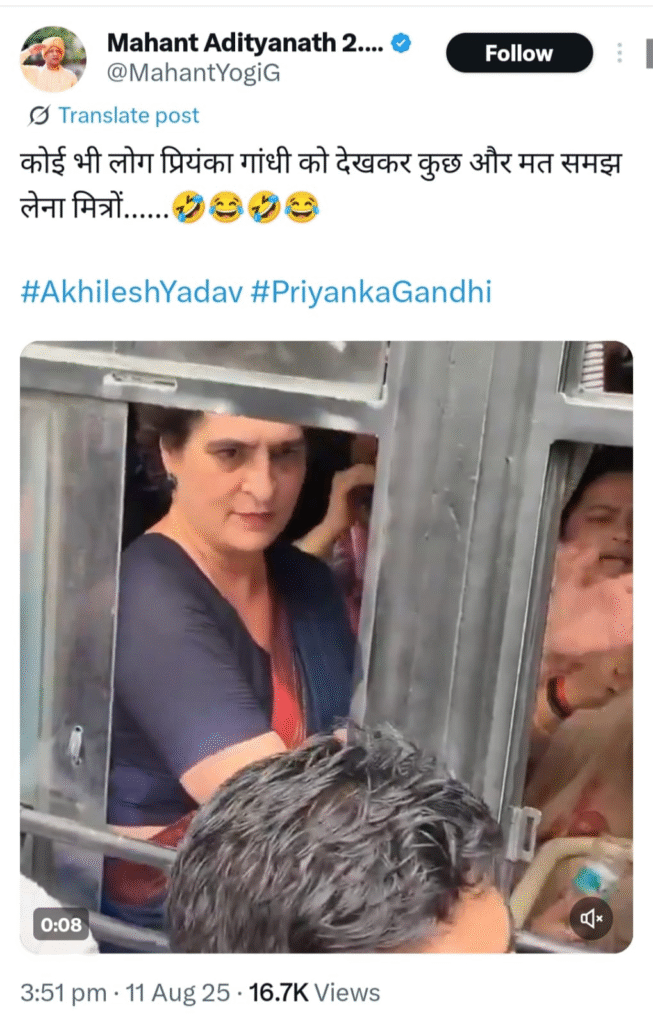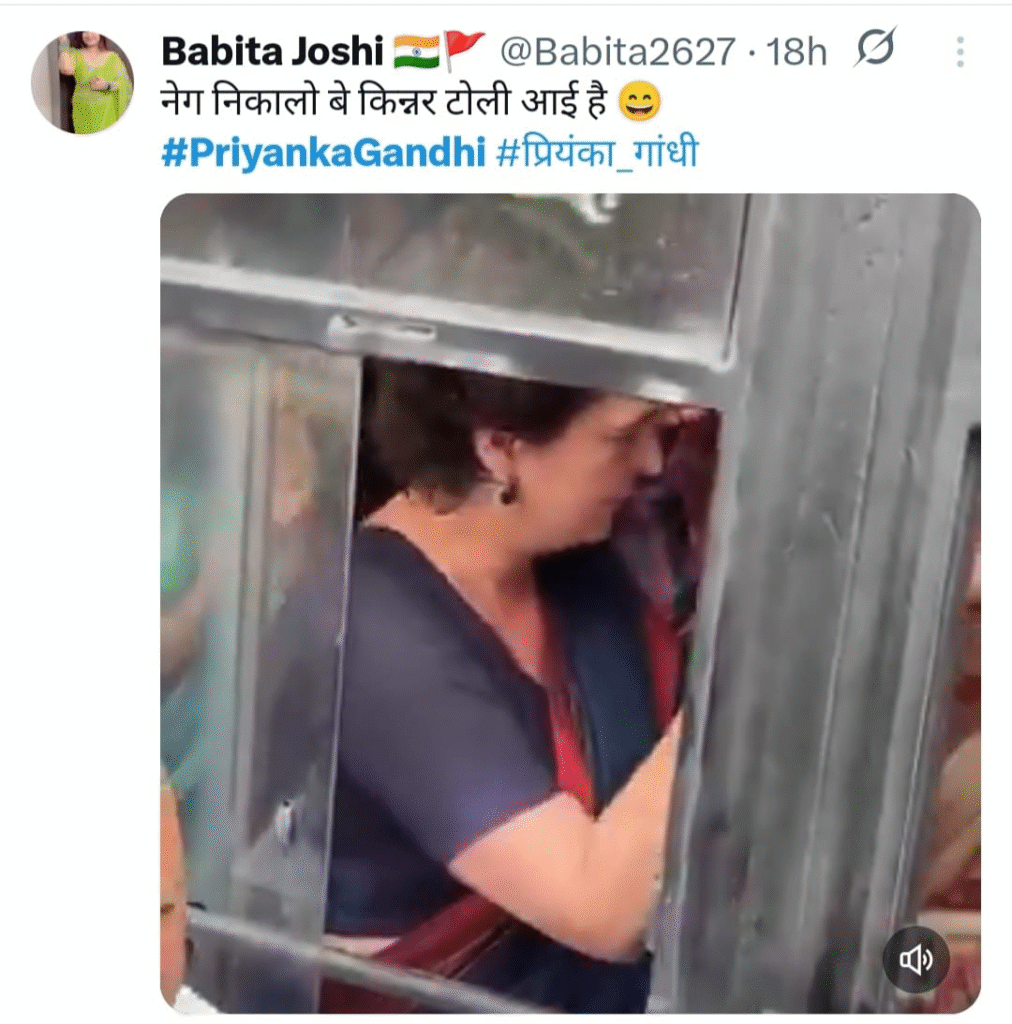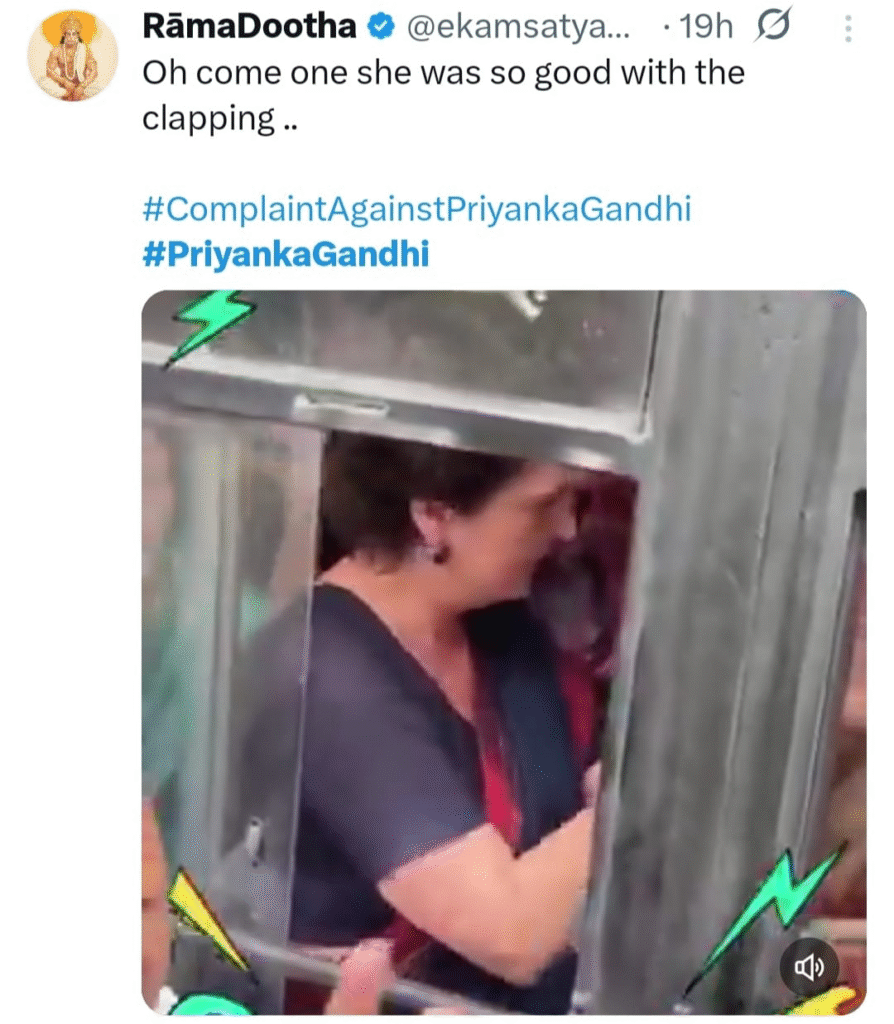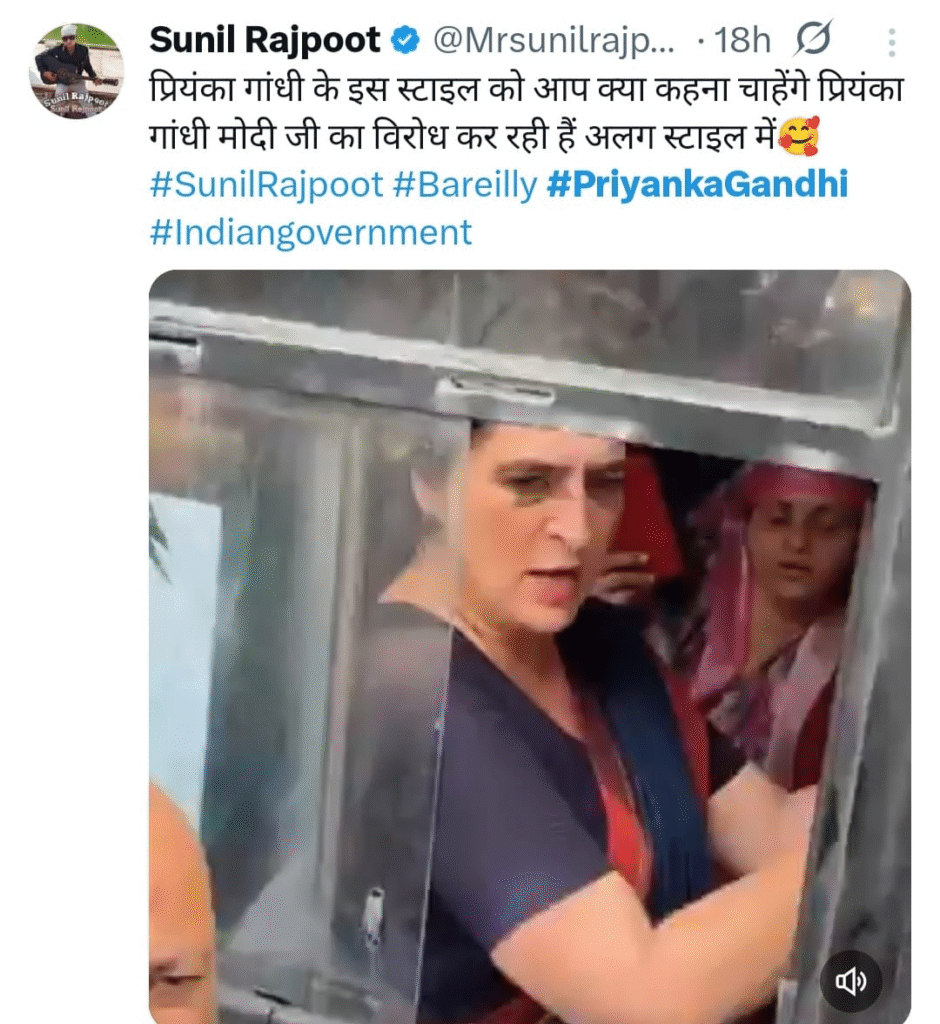Priyanka Gandhi Faces Social Media Abuse: Priyanka Gandhi faces derogatory trolling as trolls call her ‘Kinnar’. Public outrage grows over Congress’s silence. Read the full report on political trolling in India
New Delhi: In a shocking display of online harassment, Congress leader and Member of Parliament Priyanka Gandhi faced derogatory remarks on social media, where a section of troll accounts targeted her with the term ‘Kinnar’ — a word used in a demeaning context. The incident has sparked outrage among citizens who believe that such language not only insults Priyanka Gandhi but also demeans women and the democratic values of India.
Priyanka Gandhi, known for her vocal stance on public issues and active participation in protests, was recently seen leading demonstrations against the government. While her supporters applauded her efforts, some social media users resorted to personal attacks, mocking her appearance and using gender-based slurs.
Public Outcry Over Political Decency
Social media platforms are no strangers to political trolling in India, but critics say that the use of derogatory gender-specific insults marks a disturbing decline in political discourse. Citizens have questioned whether politics in India has now normalized personal attacks on women leaders rather than engaging in constructive debate.
One Twitter user wrote, “This is not just about Priyanka Gandhi. This is about respecting women in politics. Disagree with her politics, but don’t stoop to such disgusting levels.”
Congress’s Silence Raises Questions
What has surprised many is the lack of a strong public response from senior Congress leaders. Despite the gravity of the insult, no FIR has been filed against the trolls, and no official statement condemning the abuse has been issued by the party’s top brass.
Political analysts suggest that Congress’s muted reaction could be a result of strategic caution or political oversight, but the silence is now being interpreted as weakness in defending its own leader.




Gender and Politics in the Digital Age
Online trolling against women in politics has been on the rise, with research showing that female politicians face far more personal and sexist attacks compared to their male counterparts. Activists argue that unchecked abuse discourages women from entering public life and undermines democratic participation.
Priyanka Gandhi’s case is now being viewed as a litmus test for political accountability and the seriousness of parties in addressing online harassment.
The Bigger Question
The incident has reignited a national debate: Should social media trolling be ignored as “politics as usual,” or should there be stricter laws and swift action to protect individuals from online abuse?
Until political parties — regardless of ideology — stand united against such attacks, many believe that the troll culture will continue to poison public discourse.
